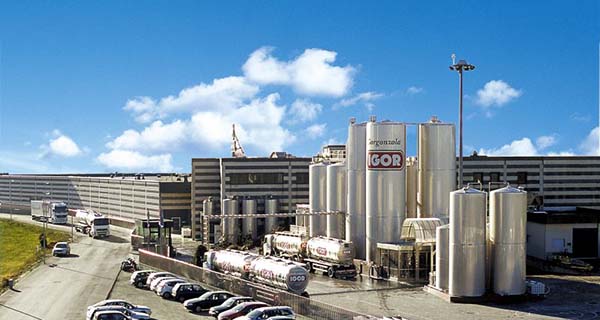
“2016 will be a year of consolidation, especially in foreign markets where achieving considerable sales figures requires time and patience”. These are the goals of Igor (located in Cameri, near Novara), which last year recorded a revenue of about 140 million euro.
IGOR TO ACHIEVE 200 MLN EUROS – “Our goal – says Fabio Leonardi, managing director of Igor – is to achieve a turnover of 200 million euro within five years; we have long-term plans. At present, 50% of our turnover already comes from, or is related to, exports. Yet, there is room for growth. For example, in North America, our gorgonzola is sold in chains such as H-E-B, Whole Foods, and Kroger, while in China the primary targets are the local branches of Carrefour, Auchan, and Metro. The next edition of Cibus is an important opportunity as it will be attended by several foreign buyers thanks to the incoming activities organised by Fiere di Parma (in collaboration with Ice and the Ministry of Economic Development). We invited even more because we know from past experience that when foreign buyers see our focus on quality and manufacturing expertise, we win them over.”
THE ENEMY IS ITALIAN SOUNDING – Leonardi adds that, “As manufacturers, on our own and without the support of the institutions, we can only do so much. This phenomenon is considerable in the States, however, we must not believe we can completely replace such products with our own made in Italy products, as there is an obvious interest on the part of American authorities to protect their local companies. This is highlighted by the fact that imports are subject to quotas and that there are numerous non-tariff barriers linked to health and hygiene parameters that, in practice, promote local products.
THE HOPE FOR TTIP CONCLUSION – We hope that the ongoing negotiations for the conclusion of the free trade agreement (TTIP) between the European Union and the United States will take into consideration the protection of the designation of origin.”
It is a shame that even when the negotiations end positively, putting words into action takes a long time, as demonstrated by the Ceta (Comprehensive Trade and Economic Agreement), which has created a free trade area between Canada and the EU. In principle, the agreement was signed in October 2013, however, it has not been enforced yet. “The paradox,” Leonardi continues, “is that Ceta would protect the gorgonzola denomination in Canada if the agreement had been ratified by all EU member states. We cannot take action against a multinational cooperative company that continues to produce in defiance of the rules. However, if there is a political intention to intervene, the results are clear. South Korea, a country where our presence as Igor has grown, signed a free trade agreement with the EU.
THE CASE OF COSTCO IN KOREA – We realized that the local branch of Costco was stocking an American, pseudo-gorgonzola, Italian-sounding product. We reported it to the local Italian Embassy and we got the Korean authorities to block the sale of this product. In short, we, as producers, should do something about it, but also the institutions must do their part.”
